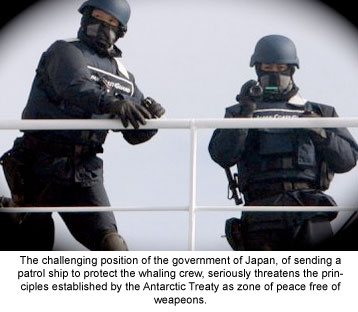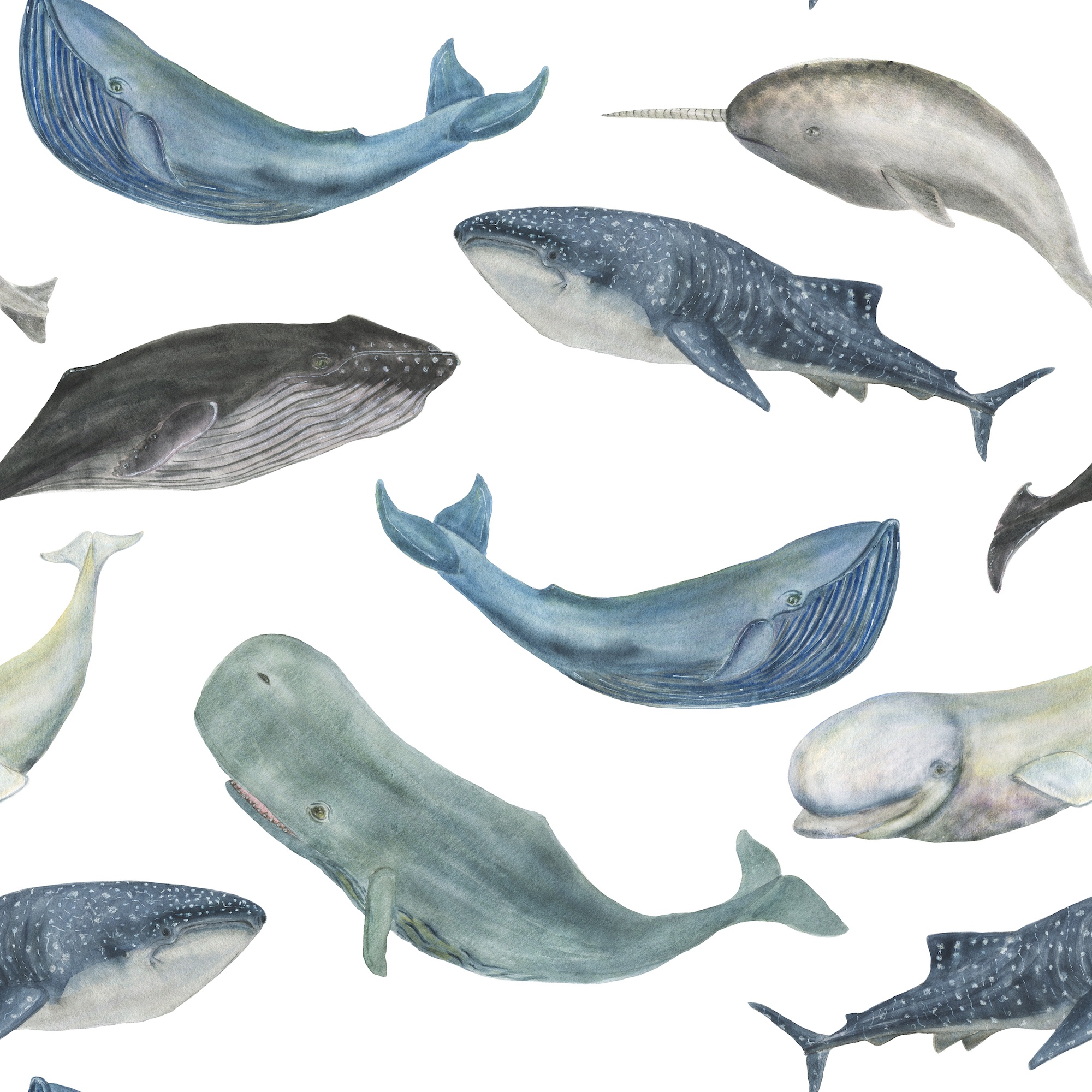October 25, 2011 (CCC/Ecoceanos News) – Sixty three organizations from Latin-America, the Caribbean and international that conduct regional work in marine conservation united to request their governments the adoption of diplomatic measures and public opposition to the recent announcements made by the government of Japan in relation to retake from next December the so-called “scientific” whaling operations in the Southern Ocean and the “improvement of the security” of the Antarctic whaling fleet.
In a letter delivered simultaneously to representatives of 14 countries from the Buenos Aires Group, civil society organizations denounced the commercial nature of the so-called “scientific” whaling stating “Since the JARPA II (lethal research) program began in 2006, the annual whaling quota increased to almost half of all whales taken under special permits per year (of all nations that have conducted whaling operations under special permit), reaching levels that are similar to the commercial whaling annual quota for the Antarctic minke whale before the implementation of the moratorium.”

“Apart from being a cover-up for commercial whaling operations thus violating the moratorium on commercial whaling, the “scientific” whaling program conducted by the Japanese government in Antarctica represents a growing and alarming threat to the governance of the Southern Ocean, the security of human life at sea and protection of the sensitive Antarctic marine ecosystem” they add.
In this respect organizations warn that “The challenging position of the government of Japan, of sending a patrol ship to protect the whaling crew, seriously threatens the principles established by the Antarctic Treaty as zone of peace free of weapeons (…) a situation that is even more worrisome because of the lack of transparency of the Japanese Government regarding the type of boat, defense personnel and instruments that would be used in the protection of the whaling fleet.”
“In this complex context, we believe that the defense of peace and demilitarization of the Antarctic is crucial to ensure the governance of the Southern Ocean,” they say.
For Elsa Cabrera, executive director of the Centro de Conservacion Cetacea in Chile “it is unacceptable that the Japanese government will once again turn the waters of the Southern Ocean Whale Sanctuary in the scenery of the slaughter of hundreds of whales that are protected and now seeks to convert the area in a conflict zone that could seriously threaten the delicate ecosystem of the Antarctic and the safety of human life.
“In relation to the operations of the whaling fleet, the 63 representatives of civil society in Latin America and the Caribbean assert that Antarctica’s delicate ecosystem is threatened by whaling operations and recalled that “in August of this year, measures taken by the International Maritime Organization (IMO) came into place, prohibiting the operation of heavy fuel ships in Antarctic waters, which is the type of fuel used by the Nisshin Maru”.In this regard, the organizations question that the announcement of the government of Japan does not give any information about the type of fuel that will be used by the vessel during the next “scientific” whaling season.
In this context Juan Carlos Cardenas, veterinarian and director of Centro Ecoceanos said that “the conservation of whale stocks and the maintenance of peace in the Southern Ocean are issues of sovereignty, governance and international cooperation. These issues need to be reflected by the Buenos Aires Group in a clear diplomatic action against Japan, and exercise our historical interests and responsibilities in the Antarctic continent”.
“The organizations concluded the letter stating that “As civil society organizations committed to the conservation of the marine environment, the effective conservation of cetaceans, defense of all life forms and peace, we see with deep concern the reprehensible conduct of the government of Japan, which both inside and outside the scope of the meeting of the IWC continues to show its unwillingness to improve the functioning of this important international organization. Consequently, and knowing your commitment with the conservation and respect to norms and international cohabitation, we ask the Buenos Aires Group to urgently take diplomatic actions to reject the recent announcements made by the Japanese government and send a clear and strong public sign of opposition to the slaughter of whales and the possible militarization of Antarctica”.
The Buenos Aires Group was created in 2005 with the aim to strengthen a regional position strongly committed with the conservation and non-lethal use of these marine mammals and currently has representatives in Argentina, Brazil, Chile, Colombia, Costa Rica, Dominican Republic, Ecuador, Guatemala, Mexico, Nicaragua, Panama, Peru, Uruguay and Venezuela.
Read the letter here



